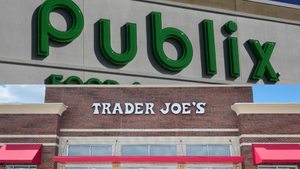Farm Bill's Passing Receives Industry SupportFarm Bill's Passing Receives Industry Support
A ban on EBT processing fees and privacy protection were among the highlights. A ban on EBT processing fees and privacy protection were among the highlights.

After failing to pass last month, the 2018 Farm Bill was finally pushed through by the House of Representatives by a close vote of 213-211.
Stricter worker requirements for Supplement Nutrition Assistance Program (SNAP) benefits was among the most controversial aspects of the bill, but industry partners have remained supportive as it also provides benefits to retailers, such as a ban on Electronic Benefit Transfer (EBT) processing fees and privacy protection for non-publicly traded retailers.
The bill does not mention the Blue Apron-type box that would be sent to SNAP recipients as a portion of their benefits in nonperishable foods, first suggested in the budget proposal issued in February, which was met with outcry from the retail community.
Greg Ferrara, EVP of advocacy, public relations and member services for the National Grocers Association (NGA), called the passage of the House Farm Bill "a critical next step in the reauthorization of this important legislation and ensuring that a strong public-private partnership between retailers and the federal government in the Supplemental Nutrition Assistance Program (SNAP) is maintained."
Ferrara added that the "voice of the independent grocer was clearly heard through the grassroots efforts" of its members, which was evident in the bill's inclusion of "key priorities," such as the extension of the temporary prohibition of processing fees on Electronic Benefit Transfer (EBT) transactions, the protection of highly sensitive store-level SNAP redemption data, and expansion of the Food Insecurity Nutrition Incentive (FINI) program.
Hannah Walker, senior director of technology and nutrition policy for Food Marketing Institute (FMI), conveyed appreciation for the efforts made by U.S. House Agriculture Chairman Mike Conaway and the committee over the past few years, which included "holding dozens of hearings on SNAP policy in order to craft HR 2, the Agriculture and Nutrition Act of 2018," which she said "maintains many of the efficiencies within SNAP that have helped keep costs down and improves SNAP retailer provisions."
Walker said FMI will continue to uphold the public-private partnership it has with the U.S. Department of Agriculture as a facilitator of the SNAP program, and it will remain a resource to Congress as the bill moves through the Senate while reminding members how jobs, wages and SNAP benefits effect each state.
"Our partnership has created tremendous efficiencies, fraud reductions and cost savings in the program over the past several decades," she said. "The grocery store serves as an area’s economic and social hub, providing safe affordable food and jobs while investing in local communities all across America.”
About the Author
You May Also Like






